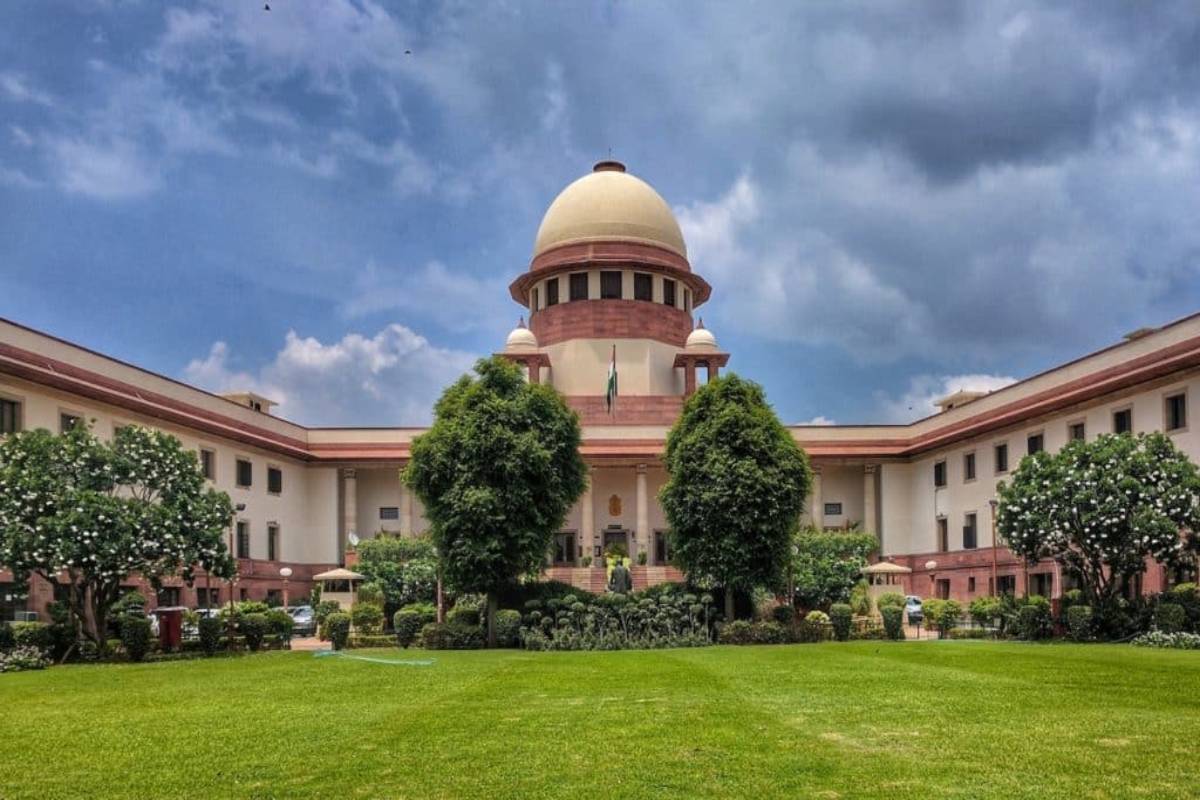
SC seeks Centre, ECI’s response to lifetime ban for convicted MPs/MLAs from contesting polls
Don't Miss
PTI, New Delhi, February 10, 2025 : Flagging "criminalisation of politics" as a major issue, the Supreme Court on Monday asked how a person could return to Parliament after being convicted in a criminal case.
A bench of Justices Dipankar Datta and Manmohan therefore sought the assistance of the Attorney General of India on the issue. It was hearing a PIL filed by advocate Ashwini Upadhyay seeking a life ban on convicted politicians, aside from the expeditious disposal of criminal cases against MPs and MLAs in the country.
The court sought responses from the Centre and the Election Commission of India within three weeks on the challenge to the constitutional validity of Sections 8 and 9 of the Representation of People Act.
"Once he is convicted, and the conviction is upheld... how can people come back to Parliament and the legislature? That they have to answer. There is also an apparent conflict of interest. They would be vetting the laws...," the bench remarked.
The bench went on to add: "We need to be enlightened on Sections 8 and 9 of the Representation of People Act. A government employee who is found guilty of corruption or disloyalty to the state is not considered suitable in service even as a person, but can be a minister."
The apex court noted that since a full bench (three judges) had passed the judgment on the expeditious disposal of criminal cases against lawmakers, it would be inappropriate for a division bench (two judges) to reopen the case. The court therefore directed that the issue be placed before Chief Justice Sanjiv Khanna for consideration by a larger bench.
Senior advocate Vijay Hansaria, who is assisting the court as amicus curiae, submitted that despite repeated orders by the top court and monitoring by the high court, a large number of cases were still pending against lawmakers.
Hansaria said the PIL sought the expeditious disposal of such cases and challenged the constitutional validity of Section 8 of the Representation of People Act, which limits the disqualification period of a convicted person to six years. He added that the petition also raised the question of whether a person convicted of a criminal offense could form a political party or be an office bearer of a political party.
Hansaria recalled that in 2017, the apex court had directed the setting up of 12 special courts in 10 different states and had issued several directives to ensure the early disposal of pending criminal cases against MPs and MLAs. Yet, he lamented that the situation remained dire, with trials progressing at a very slow pace.
"It's a matter of shame that after all this, 42 per cent of sitting Lok Sabha members have pending criminal cases. For 30 years, cases have been pending," Hansaria stated.
Elaborating on the reasons for the delay, the amicus curiae explained that special courts often took up cases unrelated to MP/MLA matters, there were repeated adjournments due to accused persons failing to appear, and in some instances, witnesses were summoned but did not receive their summons in time.
However, Justice Manmohan interjected and remarked: "Let's not generalize the situation. You are painting the entire country with the same brush. It does not happen like this. Walk in the corridors of the trial court. Clients who have come for a hearing will curse you and tell you that at 10:30 a.m., the judge has retired to his chambers. Another judge is so overloaded. You need to do a minute study. Please tell us what the actual reason is. There can't be a blanket direction."
Senior advocate Vikas Singh, appearing for Upadhyay, argued that lawmakers never intended for individuals convicted of heinous crimes such as rape or murder—who serve short sentences of two to three years—to return as MPs or MLAs.
"What we are seeing is 46-48 per cent of people with kidnapping, rape, and murder charges coming back to Parliament, where the sentences are for a lesser period of time. This could never have been the intention of Parliament while drafting this section," he stated.
In an affidavit, Hansaria pointed out that legislators wielded great influence over investigations and trials in cases, which he said were not allowed to be concluded.


0 Response to "SC seeks Centre, ECI’s response to lifetime ban for convicted MPs/MLAs from contesting polls"
Post a Comment
Disclaimer Note:
The views expressed in the articles published here are solely those of the author and do not necessarily reflect the official policy, position, or perspective of Kalimpong News or KalimNews. Kalimpong News and KalimNews disclaim all liability for the published or posted articles, news, and information and assume no responsibility for the accuracy or validity of the content.
Kalimpong News is a non-profit online news platform managed by KalimNews and operated under the Kalimpong Press Club.
Comment Policy:
We encourage respectful and constructive discussions. Please ensure decency while commenting and register with your email ID to participate.
Note: only a member of this blog may post a comment.